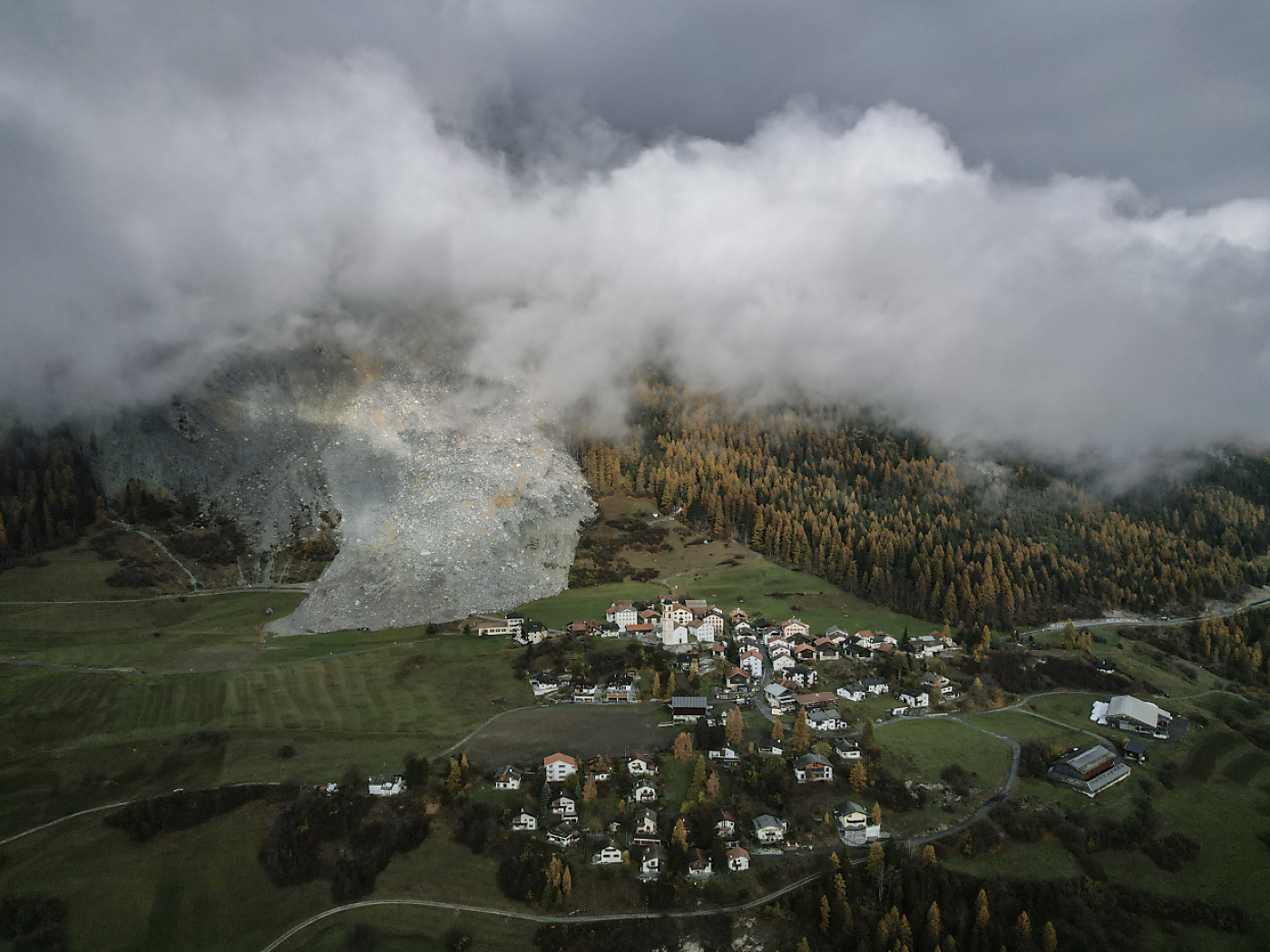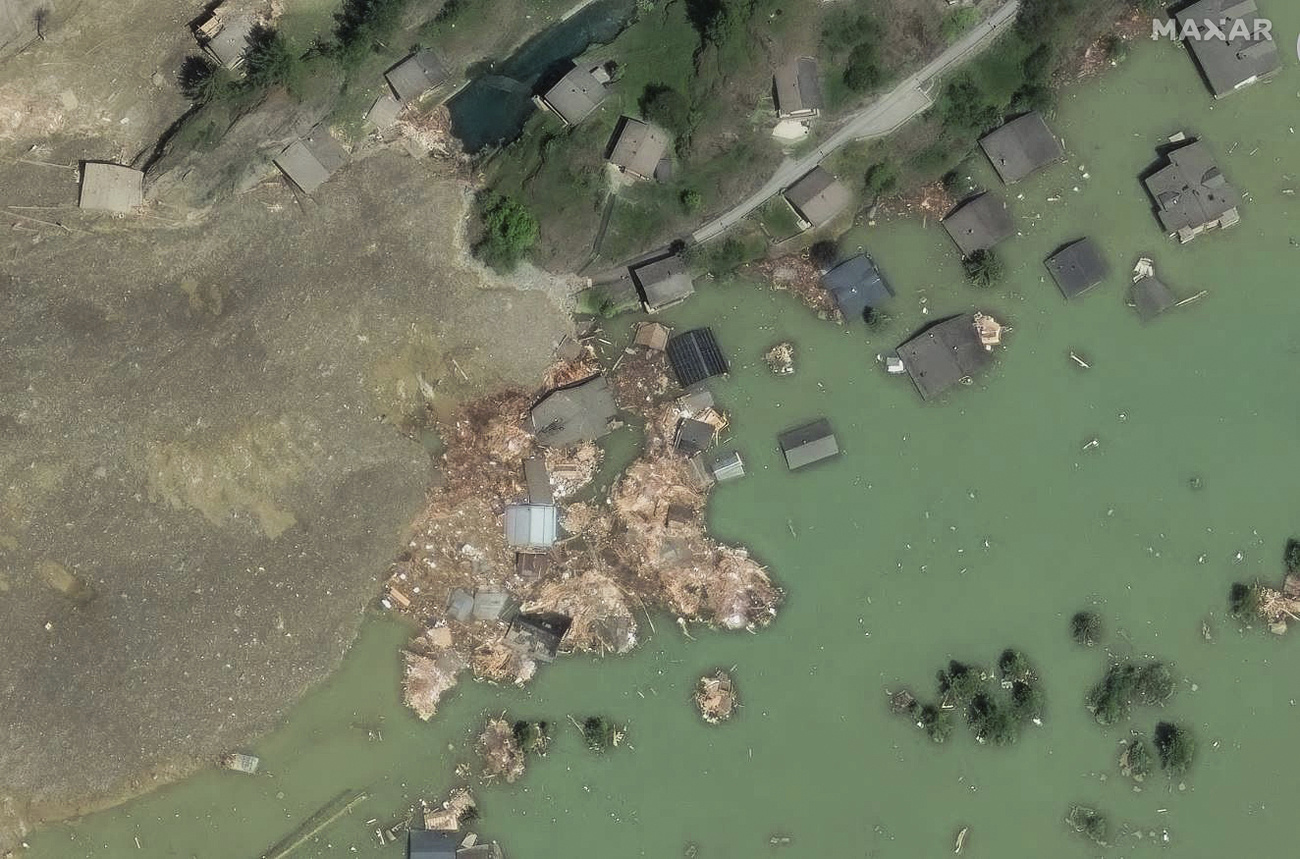
One in six Swiss homes exposed to natural hazards

One in six homes in Switzerland is located in a zone threatened by natural hazards, a new study by Zürcher Kantonalbank (ZKB) has revealed.
+Get the most important news from Switzerland in your inbox
The mountain village of Brienz in canton Graubünden has been evacuated twice in recent times because of landslide threats. Meanwhile, in summer 2024 several people lost their homes in the Misox region in canton Graubünden and in the Maggia Valley in canton Ticino due to violent storms.
A study published by ZKB on Tuesday shows that many homeowners in Switzerland are potentially affected by such events.
There are many potential cases in canton Glarus in central Switzerland: almost half of all residential buildings there are exposed to at least one natural hazard. It is followed by cantons Valais (36%), Schwyz (30%), Graubünden (29%) and St Gallen (27%).

More
The seven worst landslides in Swiss history
The hazard level is mostly low (62%) or medium (34%). However, every 125th residential building is located in zones with significant hazards, according to the study.
Floods pose the greatest risk
Researchers studied the threat to residential buildings using the hazard maps of 21 cantons. The results show that flooding is by far the greatest threat.

More
Switzerland spends big on flood protection – but is it enough?
The second most common danger is landslides. These even threatened numerous residential buildings in canton Basel Country, a region in northwestern Switzerland where this would not be expected due to the nature of the terrain. This is due to the prevailing layers of clay and marl.
Heavy rainfall is particularly problematic in the mountains, as it can trigger debris flows and landslides as well as flooding.
In canton Ticino comparatively few residential buildings are located in endangered zones. However, if they are located in such areas they are often (46%) at “medium” or even “considerable” risk. This means that the extent of the potential damage could be particularly high. Only cantons Valais and Neuchâtel have an even higher proportion of potential risk (around 50% each).
According to ZKB, many risks could be prevented through measures on buildings or protective structures in the terrain, such as flood protection dams, rockfall nets or similar infrastructure.
However, these are associated with considerable financial expenditure. ZKB says that more than CHF1 billion ($1.2 billion) are invested in protection against natural hazards in Switzerland every year.

More
Evacuation of rockslide-imperilled Swiss village in full swing
Translated from French by DeepL/sb
How we work
We select the most relevant news for an international audience and use automatic translation tools such as DeepL to translate them into English. A journalist then briefly reviews the translation for clarity and accuracy before publication. Providing you with automatically translated news gives us the time to write more in-depth articles. The news stories we select have been written and carefully fact-checked by an external editorial team.
Did you find this explanation helpful? Please fill out the short survey on this page to help us understand your needs.

In compliance with the JTI standards
More: SWI swissinfo.ch certified by the Journalism Trust Initiative




























You can find an overview of ongoing debates with our journalists here . Please join us!
If you want to start a conversation about a topic raised in this article or want to report factual errors, email us at english@swissinfo.ch.